The overarching theme of the study day was “Challenging Concepts”...
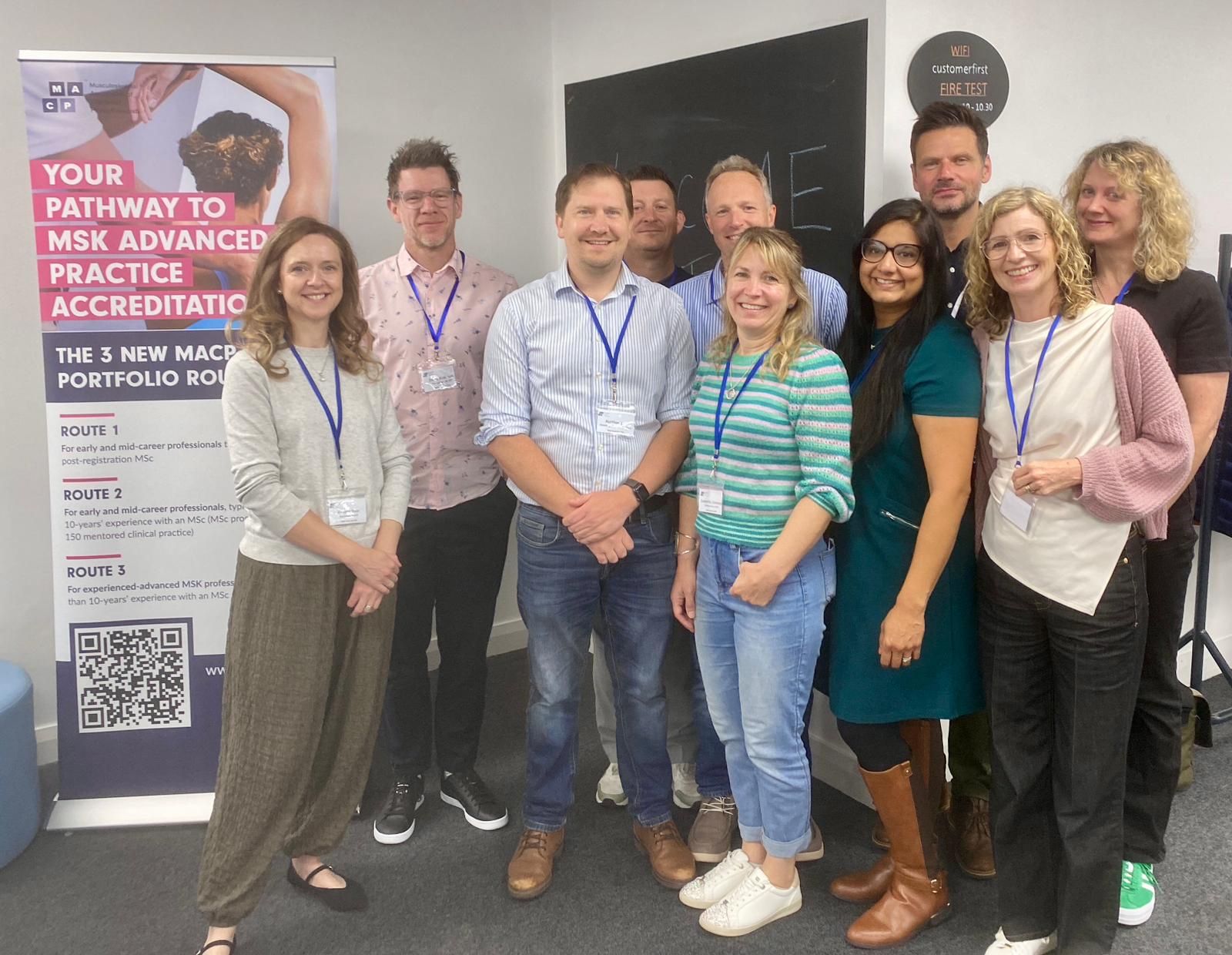
... with a wide range of speakers from different backgrounds. The day was engaging and thought provoking, and in his summary, Matt Low identified the theme of “connections” that ran through all the different topics presented.
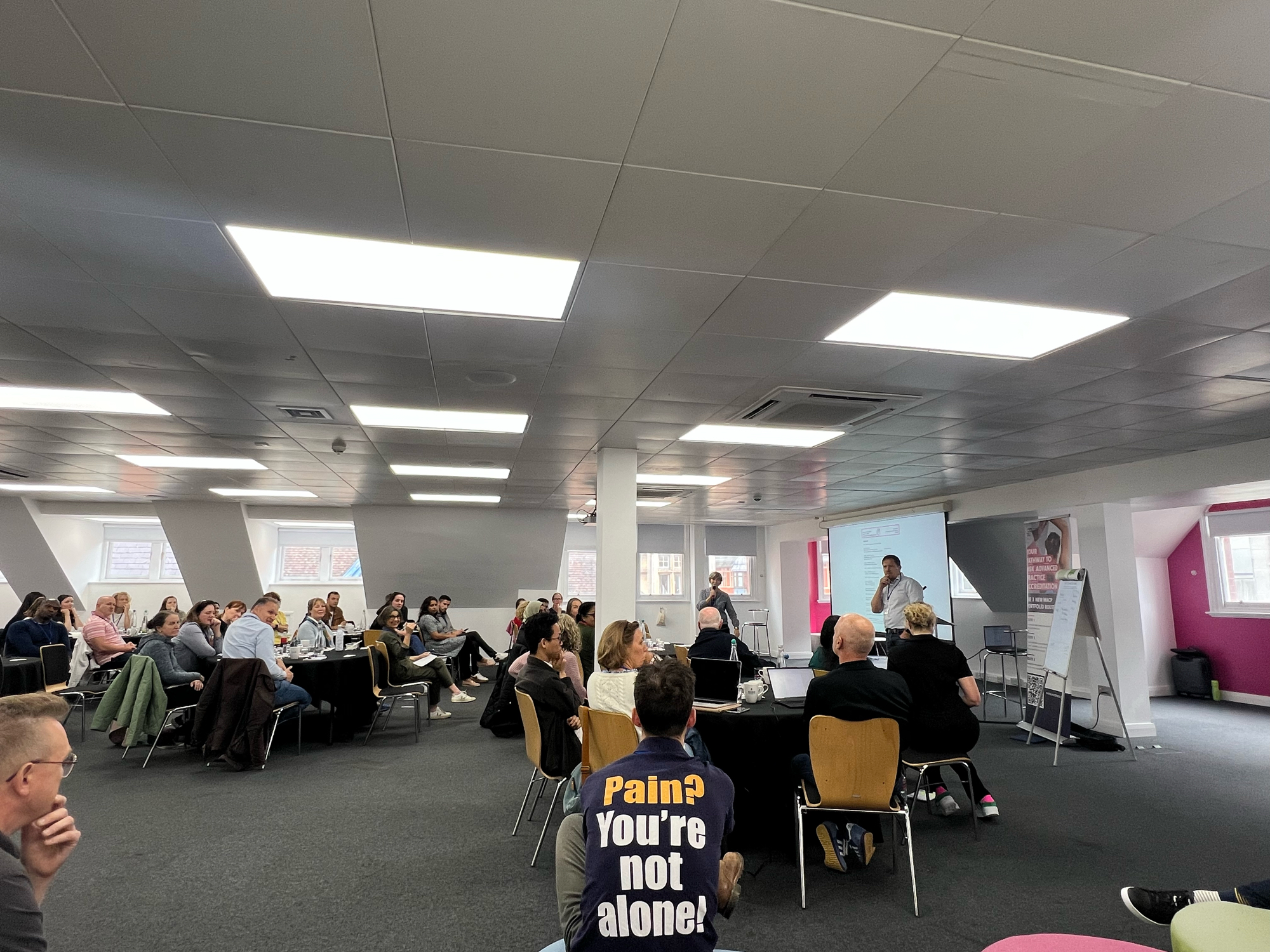
Laura Finucane introduced the day...
... shaking up the opening with a highly engaging key note speech - challenging us to change to meet complex needs with a “do with” approach - YOU are the ones with power to shape the future of healthcare! How do we move from “doing to” to “doing with”? Laura spoke candidly about how, despite advances in healthcare we are struggling using traditional modes of thinking and practice to keep up with increasing complexity and multi-morbidity.
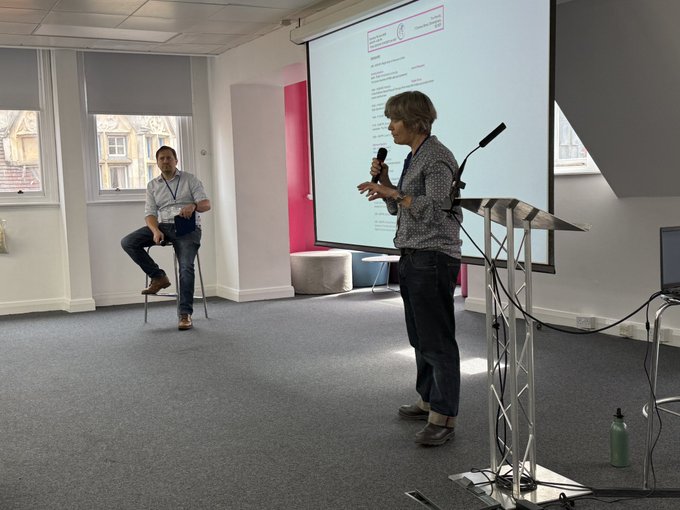
The social, economic, political and environmental entanglements with health demand doing with rather than doing to. We found that we all need to reflect on our practice and organisations/systems on making this shift.
Roger Kerry spoke “A New Evidence-Based Manual Therapy: How using data helps us provide better person-centred care” . . .
...that is critical of our traditional assumptions about manual therapy. Roger is shaping a new narrative based on the research data of manual therapy - thinking about where it is sited in the future of healthcare - as clinical skill shifts towards the safe space that manual therapy creates to facilitate healthcare.
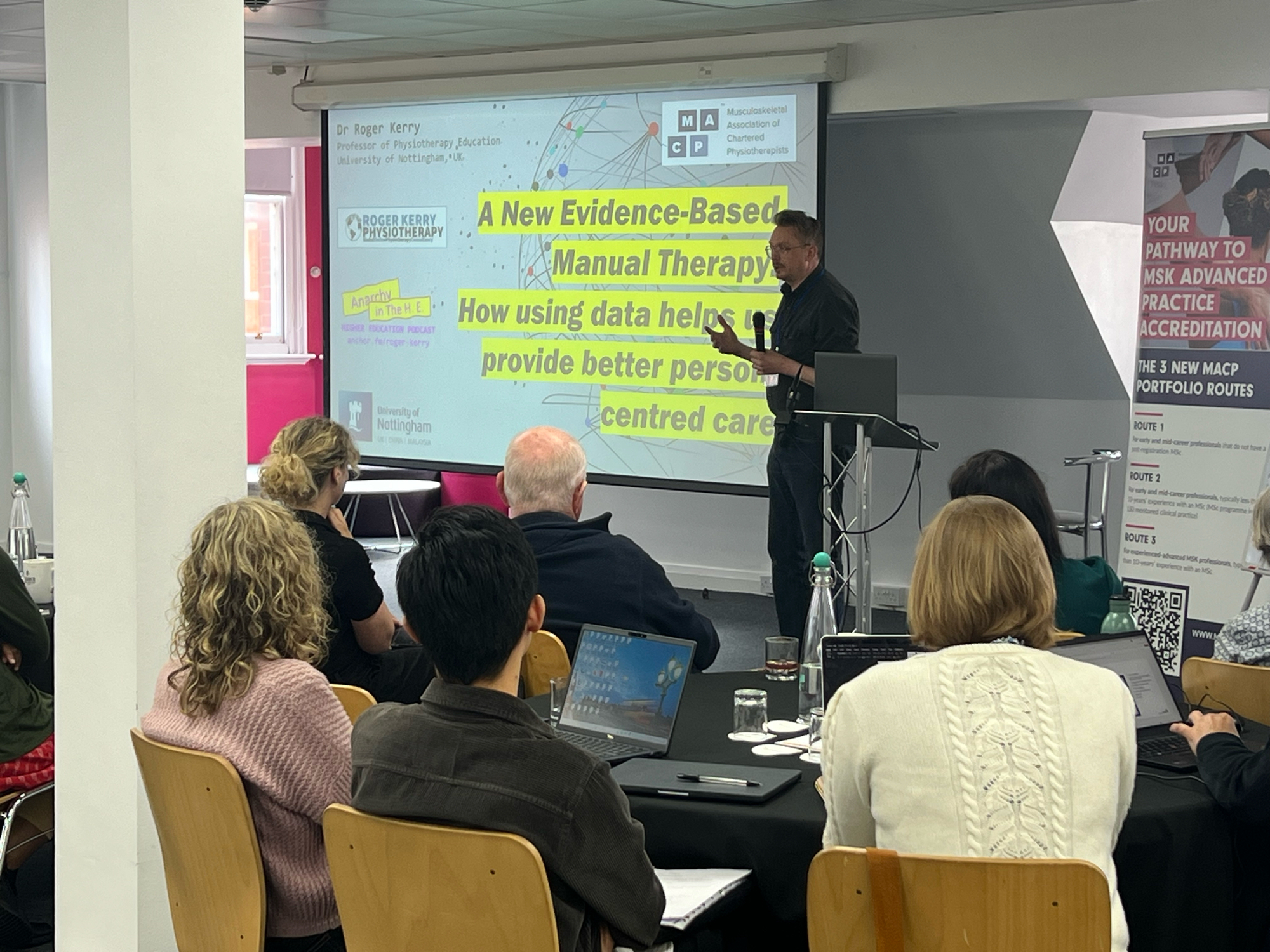
David Alderson beautifully articulated how effective communication grows from using open questions.
“Open Questions for Open Minds” - David challenged us to think about how we construct our questions, and to watch out for our “accidentally closed” questions - with an interactive challenging task highlighting the challenge of closed questions and how we can change our communication framework to improve the facilitation of the conversation.
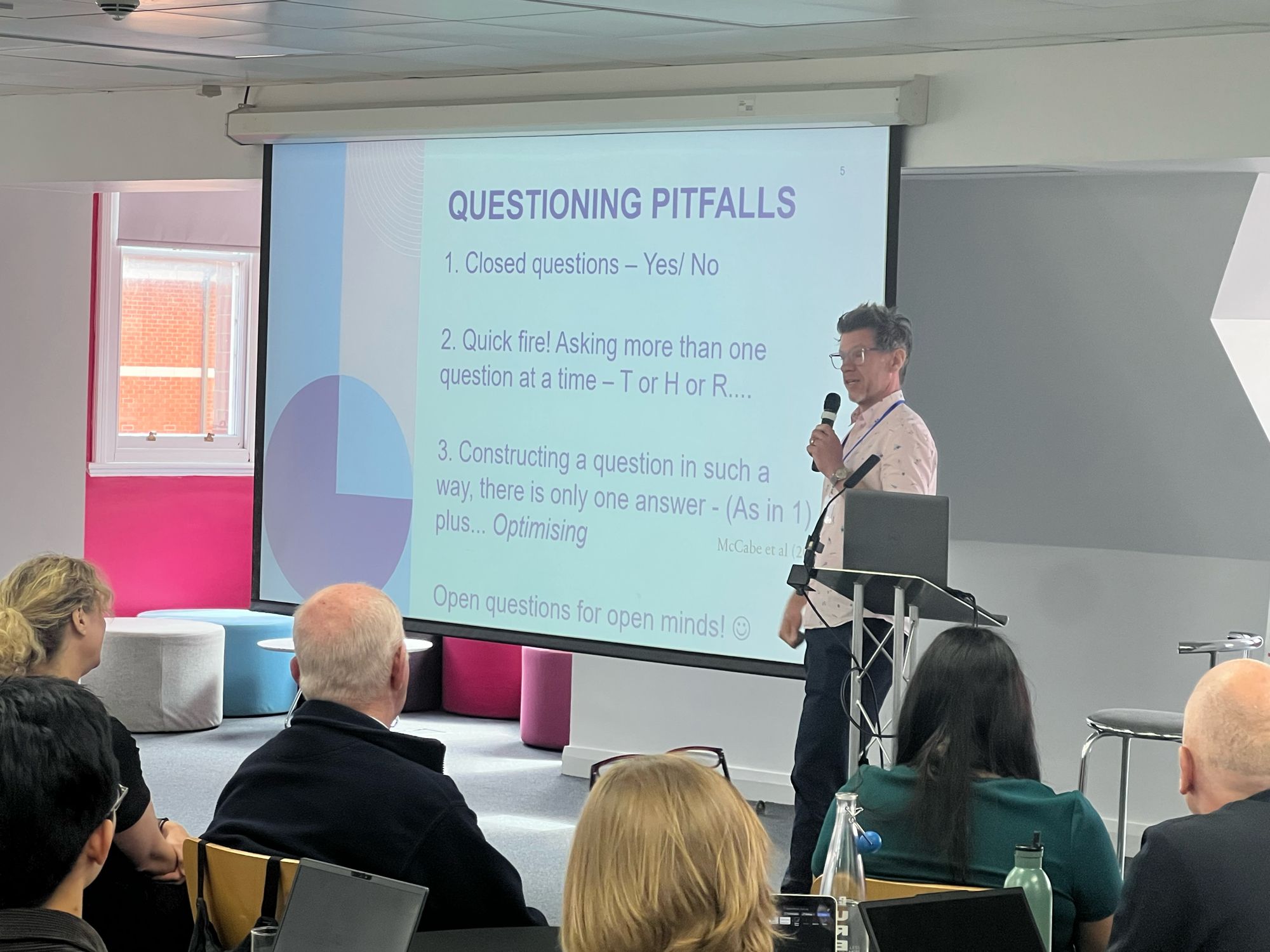
He used role-play and practical exercises to illustrate the importance of effective communication in healthcare interactions.
Sharon Morgans spoke eloquently on the effect of loneliness on pain and health . . .
... on how connection is important but also the nature and context of social connections making a significant difference to neurological, immune, and inflammatory mediators of pain amongst psychological and social aspects of health.
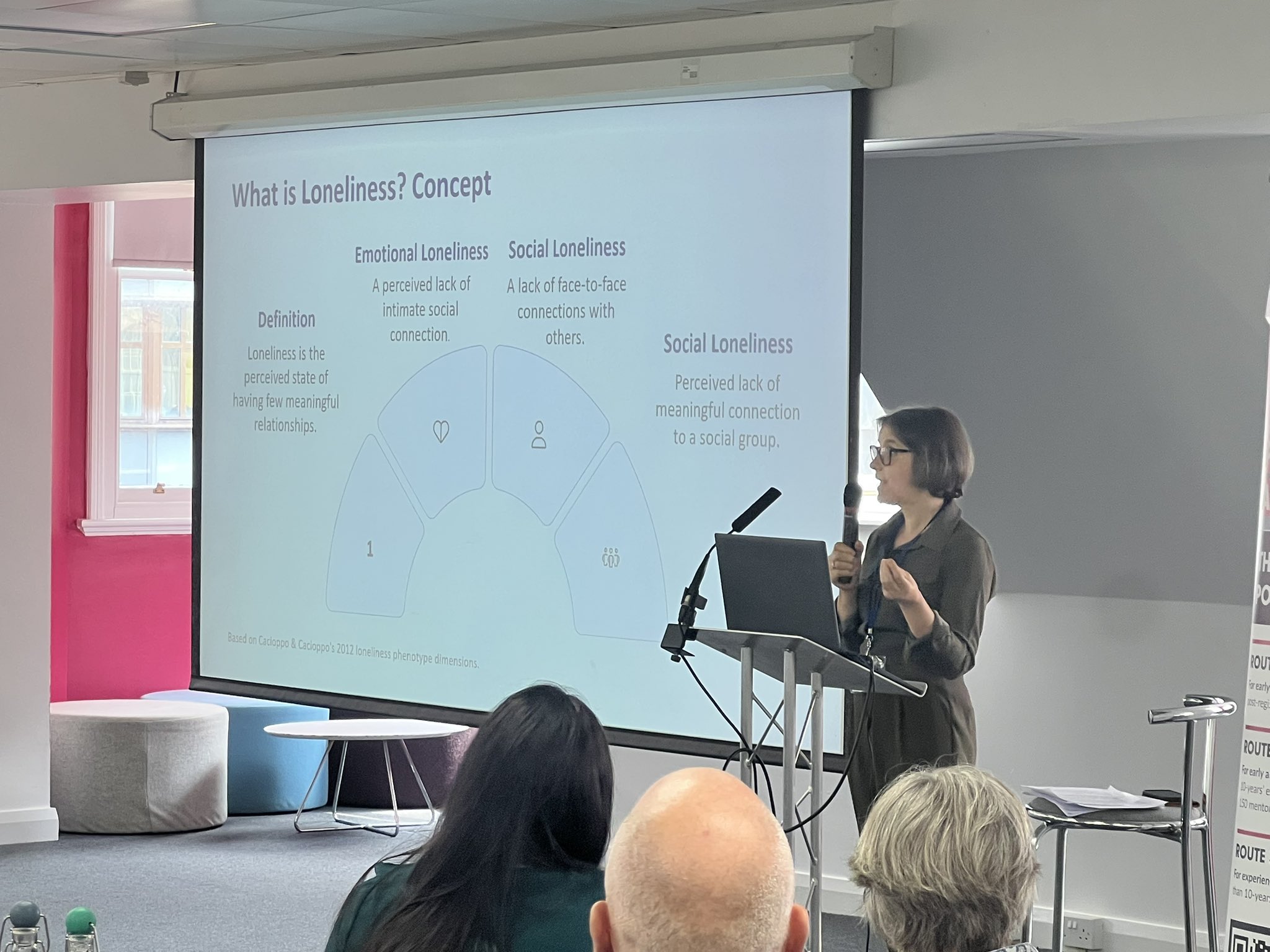
Sharon shared her work - “Loneliness - The Pain of Being Alone” - explaining that Loneliness is twice as harmful to your health than being obese and is similar with impacts on health to smoking 15 cigarettes a day. How many times do you ask the person/patient in front of you how lonely they are, or consider this a factor when they’re telling you about their persistent pain? A fascinating insight of loneliness linked to the biopsychosocial model of pain.
Her commitment to supporting others is a testimony to the profession.
Chris and Norman, our dynamic duo, delivered a powerful co-produced session epitomising connecting patients/service users . . .
... with and alongside our healthcare system. They discussed how health builders and partnership working embedded in a governance structure impacts in aligning local services to what matters most to a patient, considering the variations in delivery and strategies to address community needs. One size doesn’t fit all.
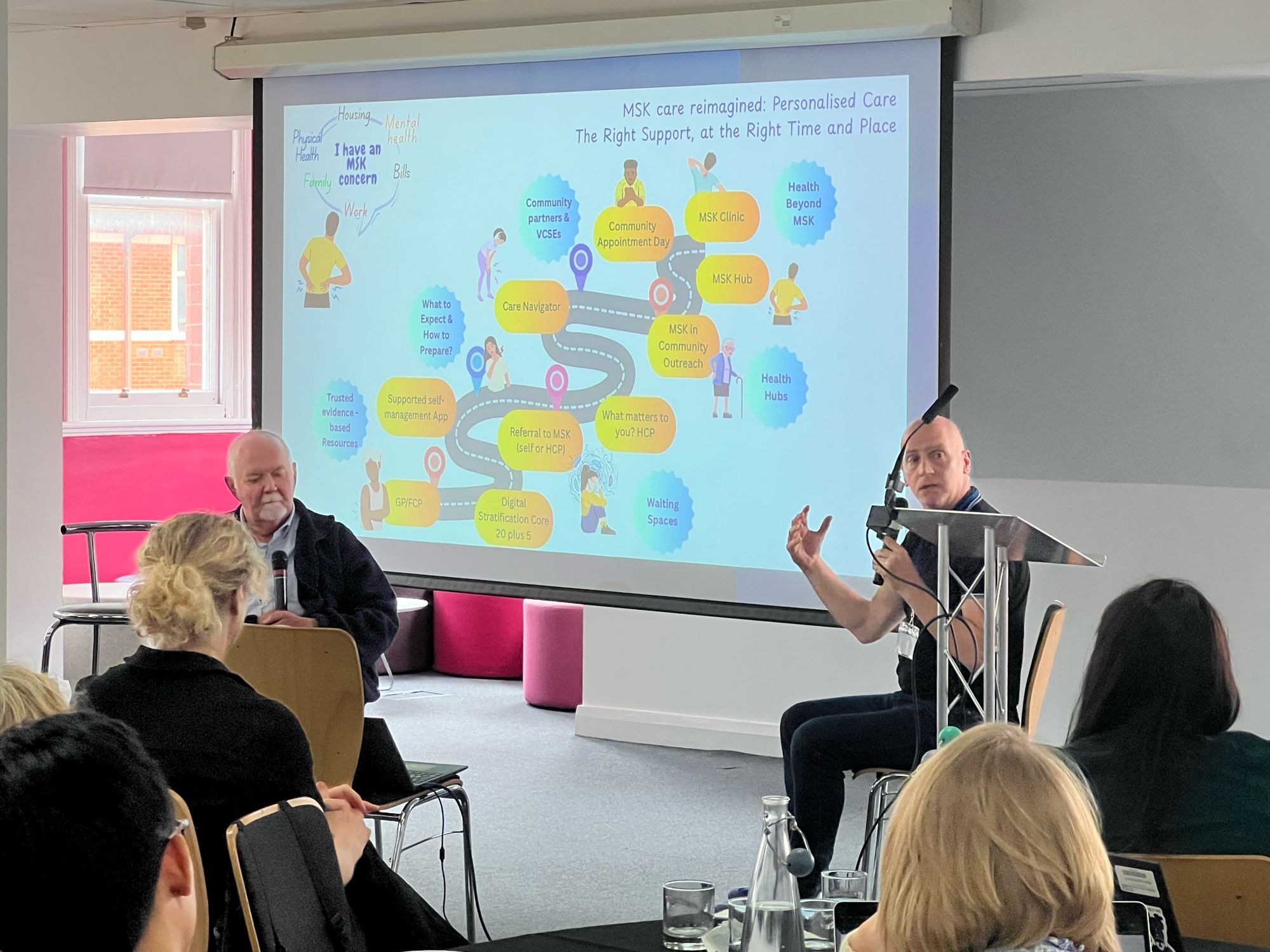
We certainly can learn a lot from Laura, Norman and Chris’ leadership in a community co-produced connection. All the delegates commented on how much they enjoyed listening to Norman's story and perspective, as a health builder.
Chris Shepherdson from Flippin' Pain...
...brought together various connections and themes from throughout the study day. The connections from bio-psychosocial aspects of care from an evolutionary and context dependent perspective.
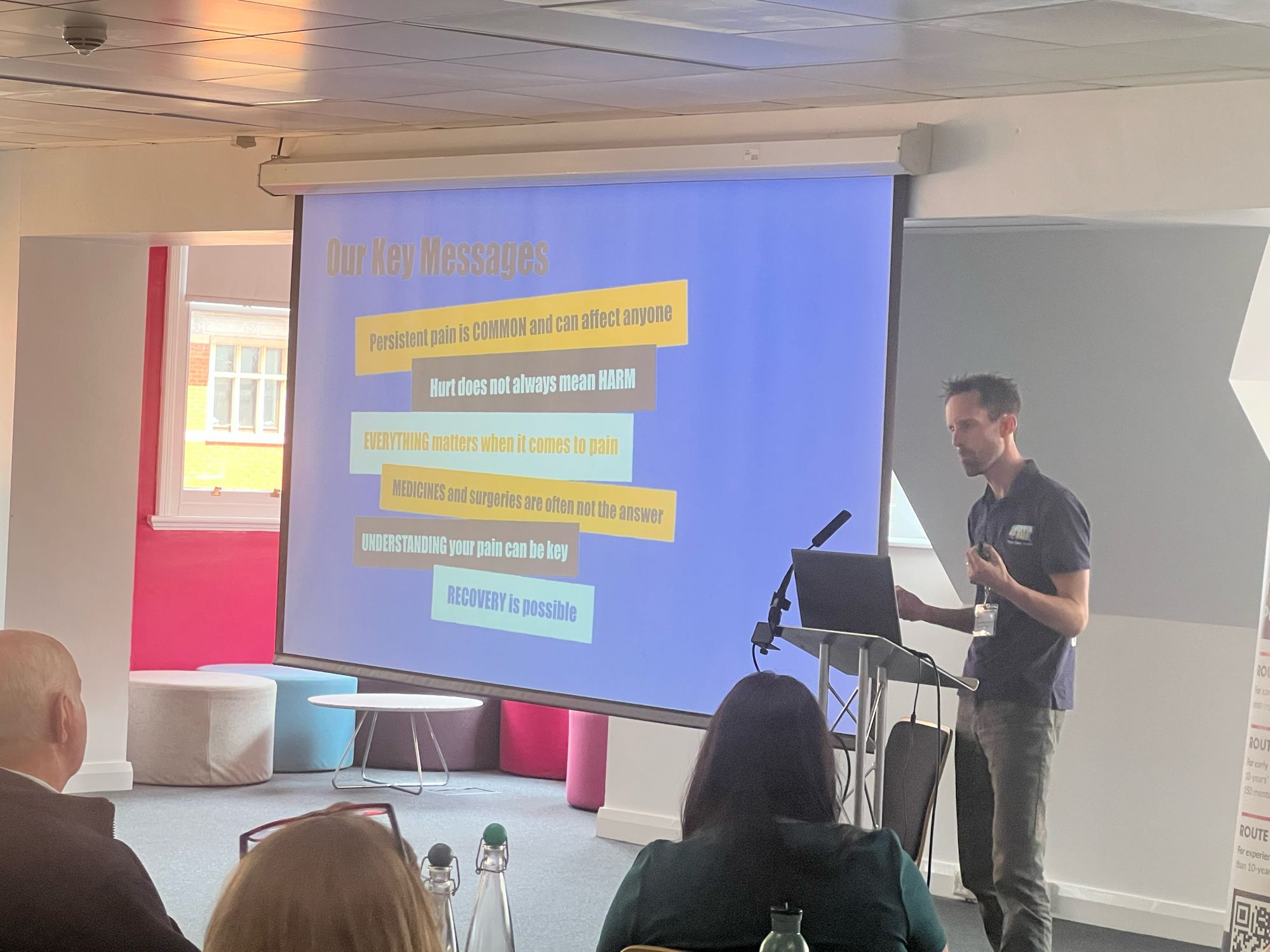
Chris introduced us to 'Hector the Protector', discussing the role of words, prediction, placebo and nocebo - with a great American accent and a nice little magic trick!
Lucy Dove spoke about her PhD study
...in a rapid 15 - “MUSCLES: Measuring and Understanding Sciatica and Leg Weakness Study” - discussing her work in the difference in reported and objective leg weakness and understanding the significance of this.
Her study started by identifying a problem of connection that can happen in patients with sciatica when evaluating the measurement of power in patients with sciatica. The differences in reported symptoms of weakness being different to the clinical examination findings.
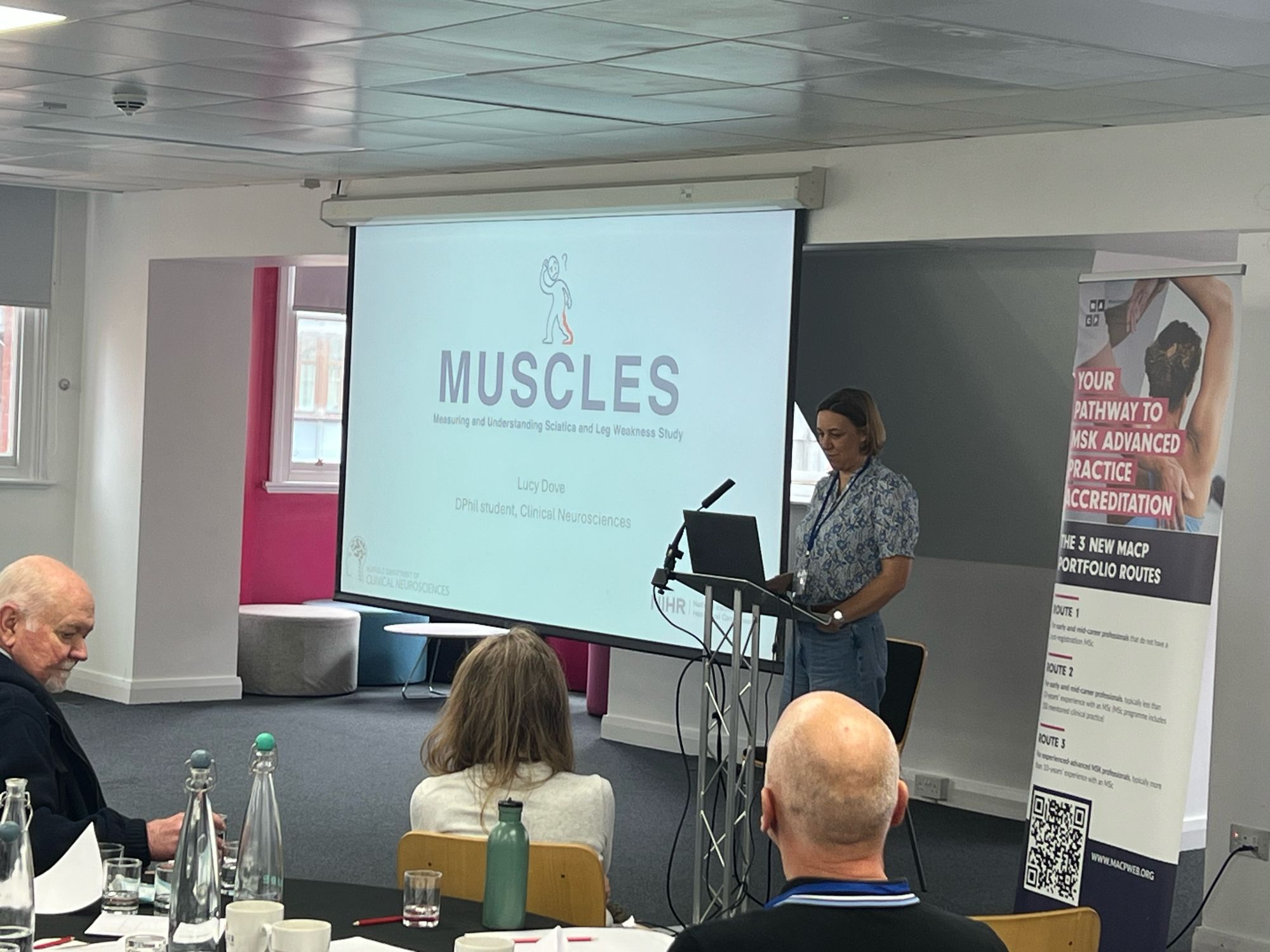
Carl Wong told us about the connections between clinical tests ...
...(slump and straight leg raise tests) and neural mechanosensitivity, symptom intensity, duration, disability and patient characteristics providing surprising results where negative tests tell us something that we do not expect!
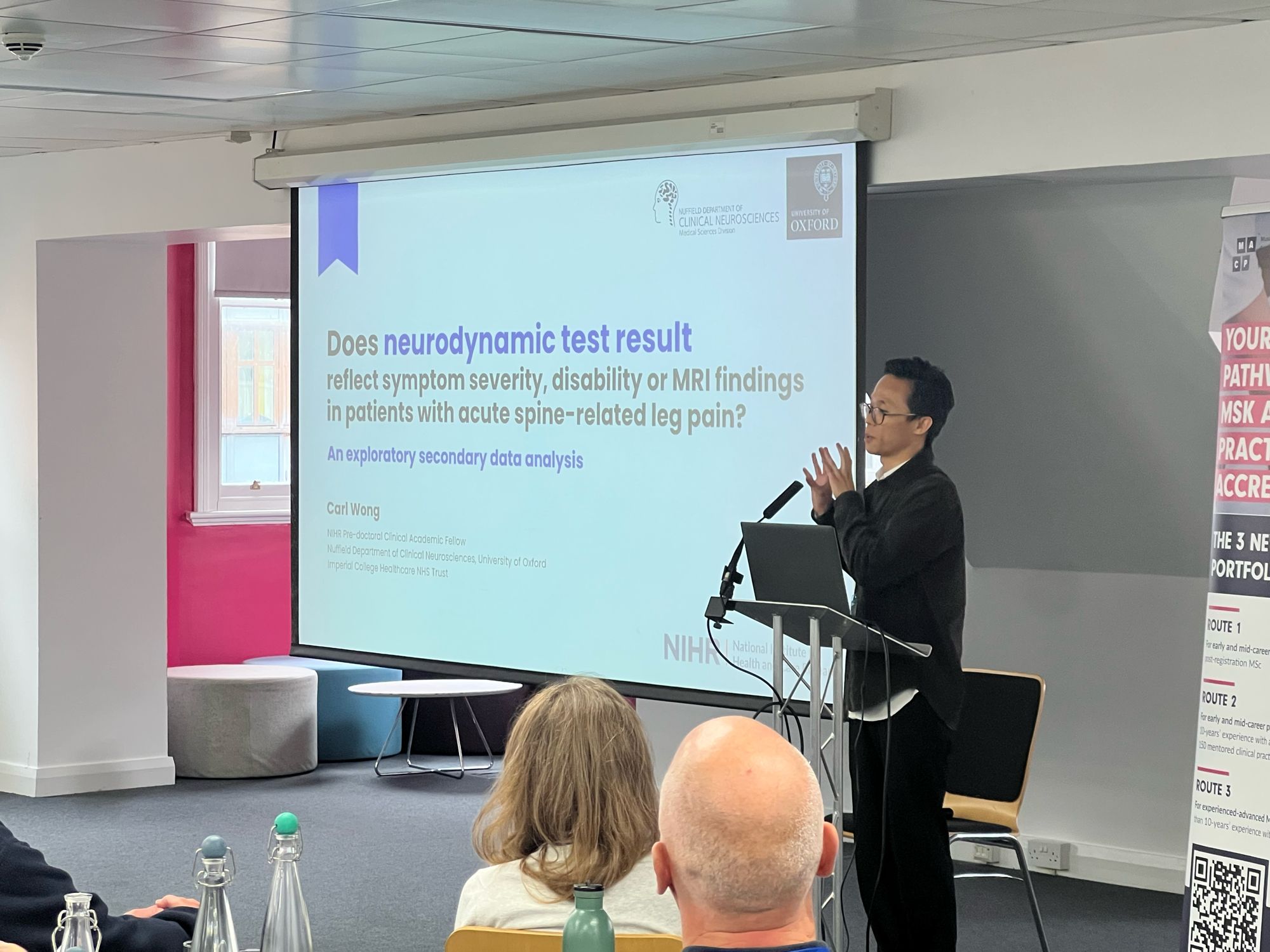
“Does neurodynamic test result reflect symptom severity, disability, or MRI findings in acute spine-related leg pain? An exploratory secondary data analysis.” Carl shared this really interesting work about what the neurodynamic tests can tell us in spine-related leg pain and how these may impacted by factors such as age, bmi and loss of function.
Lucy McCann connected with NASS through her clinical interest in axial spondyloarthropathy...
...where delays in diagnosis continue to persist which profoundly affected her both personally and professionally.

The NHS transformation unit influenced leadership, quality improvement and local improvements through connecting in multi professional contexts. Make that connection!
Nick Worth (with our Chair, Neil Langridge) spoke about the connections between SOMM and the MACP . . .
... taking us through the historical context demonstrating evolution over time. Moving away from a do to approach, towards doing with, signifying a substantial change from an ahistorical, paternalistic, biomedical model. Connections have been made across clinical, research, leadership and education areas.
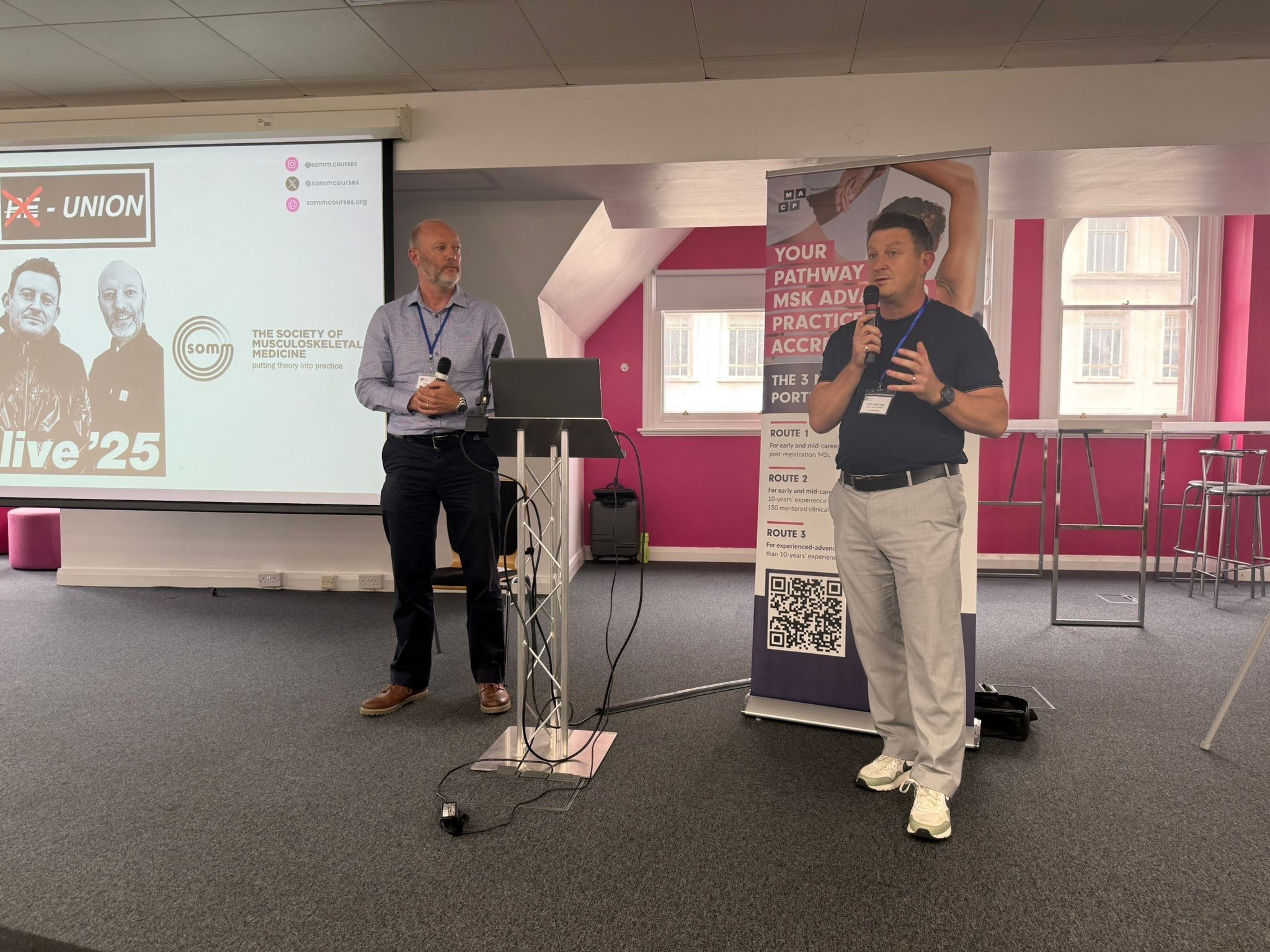
And finally, the task of summarising the day fell to our MC amd Knowledge Translation Officer, Matthew Low . . .
.. who reflected on the connections joining the study day together, as he addressed the day’s theme of “Challenging Concepts in MSK” and all the wonderful speakers that had contributed . .
... you can watch it below (apologies for the side angle view)
And that’s a wrap for the 2025 MACP study day!
Thank you to all our amazing presenters, attendees, and to the wonderful MACP executive committee and brilliant administrative team, without whose hard work we wouldn’t be able to bring together such an inspiring and thought provoking day! As we reflect on the challenges raised across the day, we must turn to the implementation and support of the ideas and exceptional work out there.